One of the most exciting developments of uncrewed aviation has been, without a doubt, the evolution of agricultural spraying drones from prototypical small aircraft to today’s large and efficient aerial machines.
For decades, the agricultural sector has depended on crewed aircraft that were not only dangerous to pilots and people on the ground, but inefficient and had the added disadvantage of blanketing the entire area, and some neighboring sectors too, with chemicals and pesticides that were needed only in a small section of the farm.
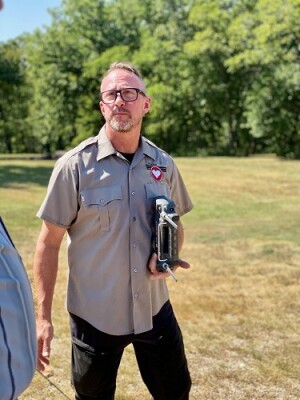
Valentine Brand, a drone company based in Winfield, KS, has focused on the application of various technologies, all of them based on the availability of uncrewed aerial vehicles (UAVs), to fine tune a plethora of services for agricultural concerns in the state of Kansas. We had the opportunity to talk to Bobby Valentine, CEO of Valentine Brand, for a detailed explanation of the benefits of their technology.
“Drone technology, combined with advanced sensors, has revolutionized precision agriculture, offering farmers an unprecedented level of efficiency, productivity, and sustainability,” said Bobby. “We use drones equipped with high-resolution cameras, lidar, thermal imaging, and multispectral sensors to capture a wealth of data about specific crops and farmland conditions. This data provides valuable insights into plant health, moisture levels, nutrient content, and pest infestations. With this information, we allow farmers to make data-driven decisions to optimize irrigation, fertilization, and pest management strategies.”
In the past, farmers relied on generic information available to all farmers in a region and could not afford a specific study of their land. Now with the availability of uncrewed aviation technology, these same farms can be exhaustively analyzed in advanced to create thematic maps that would be the base for spraying and irrigation, saving tons of pesticides and harmful chemicals and only working on the affected areas.
“When we arrive at a specific farm, we first fly the entire area with our mapping drones equipped with different sensors and create specific cartographic products that are then analyzed by our experts and the resulting product is a spraying strategy based on specific area targets throughout the entire field,” Bobby said. 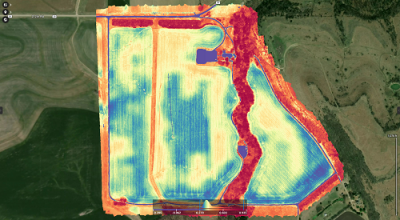 “This approach eliminates the need for labor-intensive manual inspections, as we cover large areas quickly and accurately. This efficiency allows our customers to detect and address issues promptly, preventing potential crop losses and increasing overall yields. Real-time data provided by our drones allows for timely interventions, leading to cost savings and reduced environmental impact.”
“This approach eliminates the need for labor-intensive manual inspections, as we cover large areas quickly and accurately. This efficiency allows our customers to detect and address issues promptly, preventing potential crop losses and increasing overall yields. Real-time data provided by our drones allows for timely interventions, leading to cost savings and reduced environmental impact.”
Agricultural aviation spraying in general, crewed and uncrewed, is regulated by a very strict FAA (Federal Aviation Administration) directive known as Part 137 and attaining that certification is not easy, fast, or cheap. Very few uncrewed aviation companies around the country have ventured into getting this certification, given the investment in terms of money and legal resources.
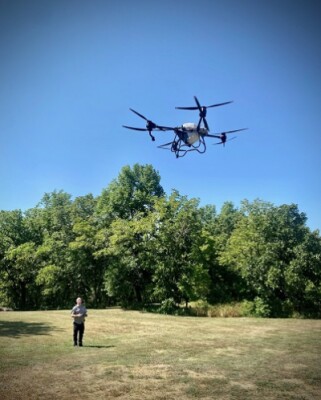 “We are licensed FAA Part 107 commercial drone operators, Part 137 commercial drone pesticide applicator operators and have a 44807 exemption from the FAA to operate drones weighing over 55 lbs.,” Bobby said. “We can help our customer with all their needs from a small piece of land to large cattle ranches that are trying to keep their pastures clean and free of noxious weeds without having to spray the entire area with chemicals that might affect their product.”
“We are licensed FAA Part 107 commercial drone operators, Part 137 commercial drone pesticide applicator operators and have a 44807 exemption from the FAA to operate drones weighing over 55 lbs.,” Bobby said. “We can help our customer with all their needs from a small piece of land to large cattle ranches that are trying to keep their pastures clean and free of noxious weeds without having to spray the entire area with chemicals that might affect their product.”
But things are not entirely rosy for the agricultural drone spraying industry, as the companies which produce the various chemicals, have not yet recognized the existence of uncrewed aircraft and therefore their respective labels do not include drone spraying specifically.
“Yes, in this business, the label is the bible,” Bobby asserted. “Right now, we are extrapolating the instructions of traditional aviation spraying detailed in the label to our drones, but we expect these companies to add specific UAV spraying instructions to all their labels in the coming years. This will be the beginning of an industry that is destined to affect all farm operations around the world, adding efficiencies and reducing environmental impact.”
As we wait for the pesticide/fungicide/fertilizer industry to get their act together and add specific instructions for uncrewed aviation, companies like Valentine Brand will continue adding valuable data to the pool of necessary research as they help their customers with innovation and ingenuity.


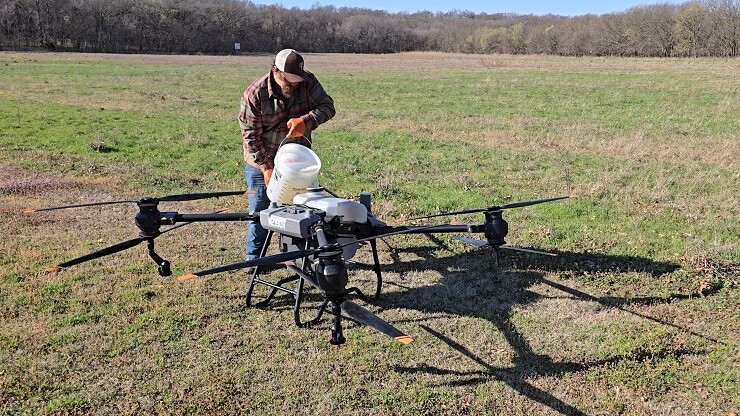

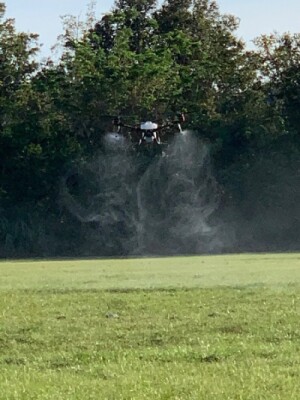
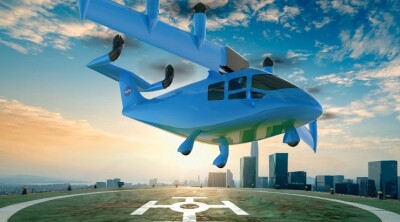
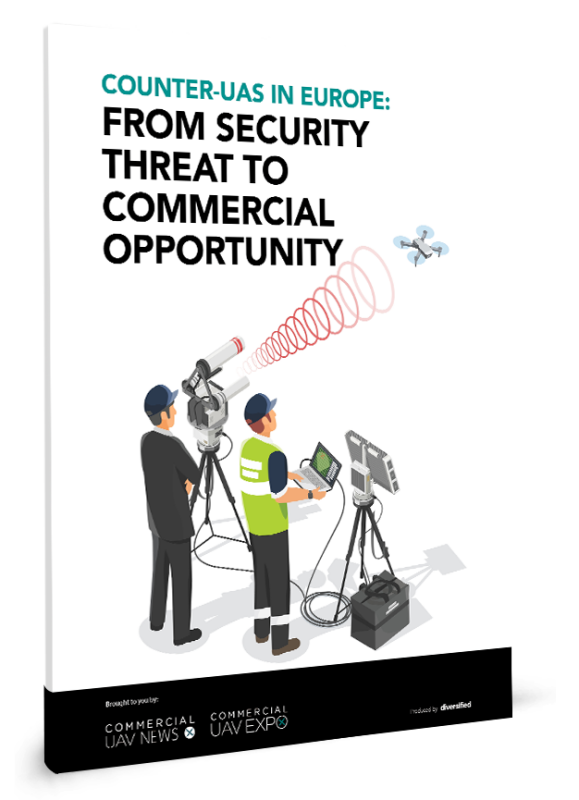







Comments